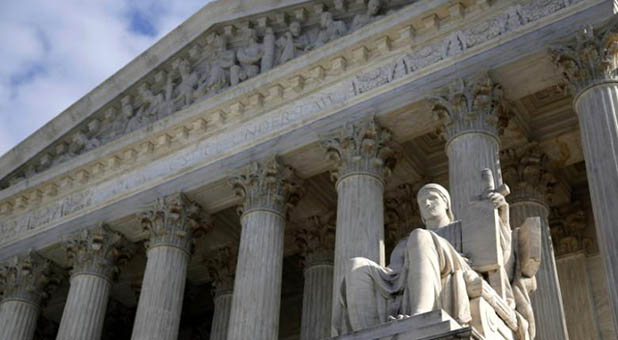SCOTUS Decision Protects Religious Organizations
The U.S. Supreme Court has decided in a key religious liberty case that government shouldn’t be deciding which religious organization is “religious enough” to be considered a church function.
It’s an issue that has been working its way through the courts for roughly 40 years. But this week’s decision was unanimous—minus Associate Justice Neil Gorsuch, who was not yet sitting on the court when oral arguments were heard—and left nothing to the IRS’ imagination.
In 1977, the IRS tried to tax a group of Catholic nuns operating a hospital, suggesting that was not a “religious function” under the Employment Retirement Income Securities Act of 1974. Congress quickly responded by preventing the IRS from deciding what is or is not a church. The high court’s decision in Advocate Health Care Network, et. al, v. Stapleton prevents the tax-collecting agency from ever bankrupting a religious organization merely on the basis that bureaucrats don’t believe it is “religious enough.”
Today, the Supreme Court of the United States, in the case of, unanimously protected religious organizations by relieving them of the government-imposed burdens of the (ERISA) of 1974, in keeping with the principle that the government is not fit to decide which religious organization are or are not religious enough to be considered a church.
The case centered around the regulatory requirements for religious organizations that provide retirement and pension plans and whether or not Congress intended to treat a religious organization the same way a church is treated. In her opinion of the court, Associate Justice Elena Kagan wrote:
A church-establishment requirement necessarily puts the IRS in the business of deciding just what a church is and is not—for example (as in the IRS’ ruling about the Sisters), whether a particular Catholic religious order should count as one. And that requirement, by definition, disfavors plans created by church affiliates, as compared to those established by (whatever the IRS has decided are) churches. It thus makes key to the “church plan” exemption the very line that, on the hospitals’ account, Congress intended to erase.
Associate Justice Sonya Sotomayor wrote a concurring opinion. First Liberty Institute had filed an amicus brief in the case on behalf of a number of religious organizations that could be impacted by the high court’s decision, including:
- Council for Christian Colleges & Universities,
- Cardinal Newman Society,
- Belmont Abbey College,
- Colorado Christian University and
- John Paul the Great Catholic University
After the court’s decision was handed down, First Liberty Director of Research & Education Justin Butterfield issued the following statement:
The history of the United States of America is one requiring the government to respect the religious freedom and autonomy of its houses of worship and religious organizations. The Supreme Court’s decision today respects that great history and tradition, allowing churches, synagogues, mosques, and religious ministries to pursue their religious mission without the weight of government bureaucracy and regulation hindering their efforts and intruding upon their mission.
















































